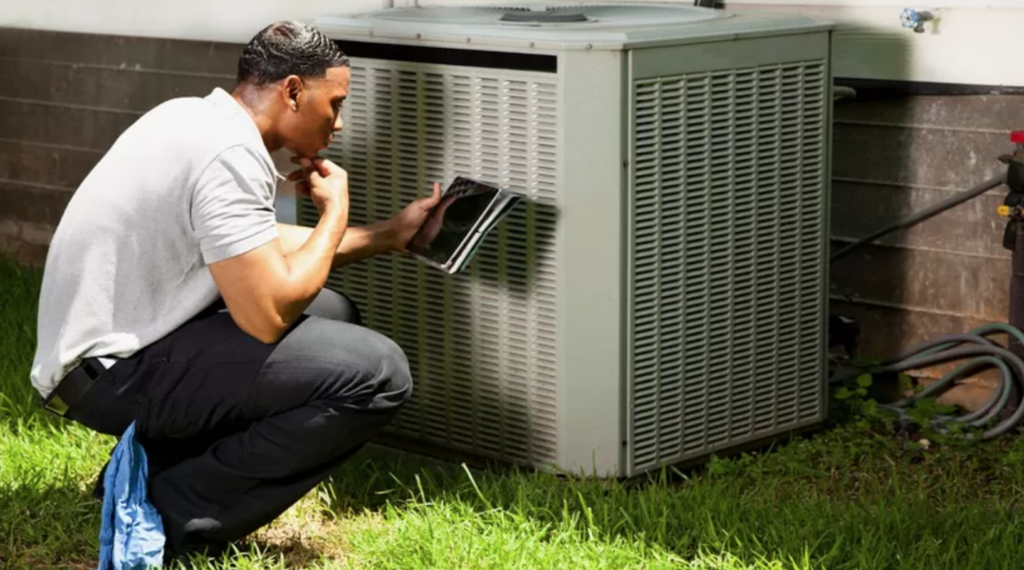By Ana Durrani

The home inspection can be a particularly stressful part of the homebuying process for buyers, but the equally anxious seller might be waiting with bated breath for the results as well. The buyer is typically responsible for scheduling and paying for the home inspection, but if the house is revealed to have major issues, the seller can be on the hook for repairs—or could lose the deal entirely.
“When selling a home, one of the most nerve-wracking parts of the process is waiting to see the outcome of the home inspection,” says Mallory Micetich, home care expert at Angi.
Home inspection issues like termite or mold damage can mean the seller will have to shell out money, credits, or concessions to make things right with the buyer. If the buyer is truly turned off by the home inspection results (and has a home inspection contingency), they can walk, aka a seller’s worst nightmare.
So why wait for a buyer to initiate a home inspection? If you’re preparing to sell your home, here’s how to identify any problems that can potentially stymy the sale.
Consider a pre-inspection
While it’s not required, a pre-inspection of your home could make the process of selling go quicker. You can disclose to buyers any problems your home inspector uncovered and how you’ve addressed them. You can also sidestep major negotiations during escrow.
“In many markets, it’s common for sellers to have a pre-listing general home inspection,” says Christine Dupont-Patz with Re/Max of Cherry Creek in Denver. “It gives sellers the ability to address any issue prior to listing, demonstrating to the potential buyers that the sellers are upfront and take care of their home.”
For sellers not keen on doing a pre-inspection, Dupont-Patz recommends, at the very least, having the major systems (i.e., HVAC, electric, plumbing) inspected. These are costly to replace, and inspecting them can “provide some peace of mind to potential buyers.”
Steps to ace a home inspection
-
Tidy up the home and leave
Before the inspector arrives, clean up any clutter.
“Although your inspector will be looking at more than just the cosmetic state of your home, it is never a bad idea to tidy up and clean your home ahead of time. This will show the inspector that, as a homeowner, you kept up with everyday maintenance,” says Micetich.
Once you’re done cleaning, it’s time to depart so the inspector can inspect your home.
“Let the professional do their job and stay out of the way, but be approachable should they need something,” says Donna Deaton, a real estate agent with Re/Max Victory + Affiliates in Liberty Township, OH.
-
Make the home accessible
“Make sure the inspector has easy access to every part of your home. If your attic access is in a closet or garage, clear any items that would impede access,” says Dupont-Patz.
The inspector can give you a rundown of all the access points they’ll need, but generally, they’ll need to get to the garage, roof, attic and/or basement, electrical service panel, and under the sinks.
-
Provide a handy list of improvements
You’ve likely made some repairs on your house, so make sure you let your inspector know that.
“If you have a list of any major improvements—when the roof or hot water heater was replaced, for example—this helps the inspector determine the age of the systems,” says Dupont-Patz.
That includes permits, too.
“Before a home inspection, it is a good idea to get together any proof of upgrades, especially if you did any work that needed permits or waivers,” says Micetich.
-
Get your paperwork together
Providing your inspector with warranties and other related paperwork can save time.
“Pull paperwork that shows any warranties on appliances, windows, gutters, or your roof, along with any recent services you’ve had done,” says Greg Crouse, product marketing manager at Leaf Home.
Having a binder with all of your paperwork can keep you organized and ready to go.
“It is also smart to gather any information, including receipts with the date of purchase for items like appliances, HVAC, water heater, and other essential systems,” says Micetich.
-
Do a thorough check inside and out
If you don’t have the time or budget to hire an inspector to check out your home before the official inspection, grab your clipboard, download a home inspection checklist, and survey your home yourself.
The more prepared you are, the better—and the more likely things will get handled early to speed you through the sale.
